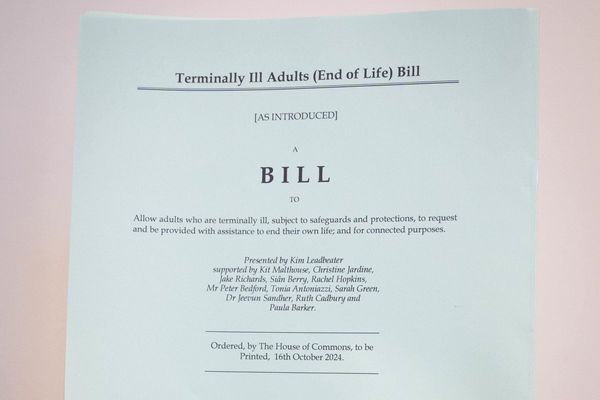
The great French tradition of forcing kings into hasty retreat is alive and well, with Charles III cancelling a state visit this week because of mass demonstrations over President Emmanuel Macron’s pension reform.
The king’s jaunt would have taken in the palace of Versailles –a pit stop with perhaps too much historic resonance at a time when the streets are ablaze and the revolutionary barricades of centuries past are today made of piles of rubbish. The striking workers who would usually provide the assorted finery that accompanies a state visit had literally refused to roll out the red carpet for King Charles, declining to provide any flags or furnishings.
The pension reform of contention is the raising of the official retirement age from 62 to 64, but it is largely about making people pay into the pension system longer. This will particularly affect blue-collar workers, who start their careers earlier (and are also likely to die earlier), and who can now expect two more years of physical labour into their 60s.
The minimum retirement age affects only people who have worked enough full years to qualify for a full pension, which will rise to 43 years under the reform. Women in France, who currently retire with 40% less than men, are already more likely to have to work until 67 to receive the full pension, and will find it even more difficult to qualify for the full amount.
Since the law was drafted, millions have been peacefully protesting in the kind of organised general strikes that have all but disappeared from much of the industrialised world.
The 10th day of action will be held tomorrow. Public transport has ground to a halt, petrol refineries have been blockaded and schools have closed. There are the piles of rubbish accumulating on the streets of Paris while refuse collectors strike — few workers have such a visible and odorous demonstration of the consequences of withdrawing their labour at their, ahem, disposal.
What may surprise onlookers in countries such as Australia, where the right to strike has been eroded to the point of criminalisation, is that these actions receive broad support from the public. Two-thirds of French people are in favour of the protest movement. By contrast, Macron’s popularity is 28%. There is a widespread understanding in France that a disrupted commute is far less inconvenient than, say, a herniated disc from two more years spent hanging on to the back of a rubbish truck to help close a theoretical future deficit caused by the retirement of millions of office workers who will almost certainly live longer than you.
As with any mass popular movement in France, there is a small percentage of “casseurs” (“breakers” or “smashers”) who use the protests as an excuse for violence, with fire and projectiles the main weapons. These are the groups responsible for the infernal images that have circulated in the international media. The police response has been predictably brutal, and they have been condemned by the Council of Europe for using excessive force. Police say 123 officers have been injured.
Whether they’re marching peacefully in the day with placards or setting fire to the streets at night, it’s clear that people are furious. The anger comes not just from the reforms but the manner in which they have been passed. With his government lacking a majority in Parliament, Macron bypassed a vote entirely by using a constitutional mechanism known as article 49.3 to ram through the legislation.
It’s a classic Macron imbroglio — from the certainty he expressed in a recent TV interview that the real problem is that people just don’t understand how clever and urgent his policy is, to his blindness to the inequalities it might exacerbate. But it also reveals the howling democratic deficit at the heart of French politics.
Macron may be able to claim he has twice been elected with a plan to reform the pension system (the policy was abandoned during his first term due to the pandemic), but his opponent in both 2017 and 2022 was Marine Le Pen. Very few people voted for Macron because of his ideas — they voted instead to keep the far-right wolf from the door.
Macron’s plan is far out of step with a populace who still believes that we should work to live, not the other way around. The reforms might be complicated (like absolutely everything relating to paperwork in France). But people are protesting for a very simple ideal — the right not to work until they drop. The fact that other countries have abandoned that dream doesn’t mean it will be given up without a fight.
France has the lowest poverty rates among retirees of anywhere in Europe, clearly a distinction many feel is worth hanging on to. Compare this with Australia, where the fastest-growing demographic of homeless people is women over 55.
With no social security agreement between the two countries, my current retirement plan is to die of climate change.







